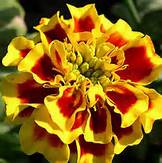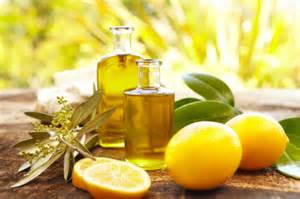Absolutes
In the general term 'essential oils' there are some which are more accurately called 'absolutes' because they have been through a particular form of extraction which brings into the 'oil' more components than essential oils produced by steam distillation. The process of distillation releases only the lighter aromatic molecules, which are subsequently separated and packaged, while the absolutes contain both the lighter and the heavier molecules,. The absolutes, include jasmine, tuberose, rose maroc, narcissus, cistus and hyacinth, among other, and are made from the most fragrant and delicate flowers.
It is an ironic yet poetic fact of nature that the most fragrant flowers are the most difficult from which to extract the fragrance. You might simply pass a rose in the garden but the aroma wafts towards you and stays with you for half the day. One jasmine plant can perfume an entire garden. Capturing this power is phenomenally difficult with many millions of petals being required to fill one small bottle of, for example, jasmine oil.
It is not an easy job to coax the powerful aroma from the delicate flowers from which absolutes are made. Distillation is too harsh, so over the years other methods have been employed. The ancients used fat extraction, a method which has been continued during the following many centuries in the form of maceration or enfleurage, but today we have Co2 (carbon dioxide) extraction to obtain the aromatic material.
This produces an 'essential oil' or, if you want to be exact, 'an absolute', which smells exactly like the flower from which it came. The same cannot be said for steam-distilled essential oils, which often differ somewhat in aroma from the plant itself.
Absolutes contain in them more components of the plant from which they came, including waxes, colour pigments, fatty acids, vitamins and minerals. These tend to give the absolute a more three-dimensional aroma, much appreciated by the perfume industry. The very name 'absolute' does, in fact, describe this class of oils very well because they are absolutely complete in their aromatic complexity.
In the aromatherapy field there has been a long debate about these absolutes, with some people saying that the extraction methods, bring into the 'oil' residues of solvents and particles of the plant which are not therapeutic. It has now been shown that the absolutes do not necessarily contain residues of solvents which, in any case, can be organic substances.
Also, the newer method of Co2 extraction eliminates the question of solvents.
The growing appreciation of absolutes has generated the new practice of extracting absolutes from plants usually distilled by steam distillation. We are discovering that chamomile absolute, as distinct from chamomile essential oil, smells different to it, and may have properties different to it too.
The difference between essential oils and absolutes are, in fact , as their name implies -more absolute, i.e., complete or entire. In essential oil terms, this means they extend, perhaps more than some essential oils, from their medicinal therapeutic value into aroma-psychology and the dimension of the emotional and even spiritual value.
Reference: The Fragrant Pharmacy; V.A.Worwood
- Home
- Addiction
- History of Drugs-4
- History of Drugs
- History of Drugs-3
- Rosemary-Personality-Profile
- The Somatid Connection
- Personality In Perfumery
- Personality Tests
- The Water Connection
- History of Drugs-5
- Mind-Mood-Emotion-Quick Reference Chart - S - Un
- Cinnamon - Personality profile
- Emotional-Healing Problems-A-B-Positive and Negative Mood Charts
- Emotional-Healing Problems-B-H-Positive and Negative Mood Charts
- Mind-Mood-Emotion-Quick Reference Chart - Un - W
- How Essential Oils Work On the Brain
- Cardamom Personality Profile
- Essential Oils Used For Emotional Healing-A-M
- Electro Magnetism
- JASMINE- Floral - Jasminum Officinale,J. grandiflorum, J.sambac
- HYACINTH - Floral - Hyacinthus Orientalis
- Emotional Healing Introduction - 2
- Emotional Healing Introduction
- Memory Enhancement, Mental Clarity and Efficiency
- How To Get Through Life In One Piece
- HELICHRYSUM (Immortelle or Italian Everlasting)
- GRAPEFRUIT - Fruitie - Citrus paradisi
- The Art Of Smelling - Which Method - Aromaprofiles
- The Art Of Smelling
- GINGER PERSONALITY PROFILE
- Geranium - Pelargonium graveolens Personality Profile
- Frankincense Resinie - Boswellia Carteri
- Quality and Purity - 2 - AromaProfiles
- Quality and Purity - AromaProfiles
- ChemoTypes - AromaProfiles
- Adaptogens - AromaProfiles
- Synergy and Creative Blending
- Complexity and Flexibility- AromaProfiles
- How To Use Essential Oils For The Fragrant Mind



